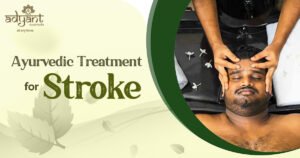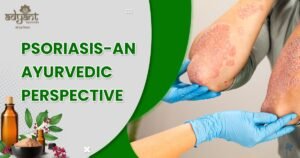Table of Contents
ToggleAyurveda Management of PCOS and PCOD
What is PCOS and PCOD ?/ Overview about PCOS and PCOD
PCOD is a condition where the ovaries release a lot of immature or partly mature eggs and eventually they become Cysts. Weight gain, irregular periods, thinning hair, and acne are common symptoms of PCOD.PCOS is the condition in which ovaries produce higher levels of androgen than usual, which interferes with the development and release of the eggs. Some eggs develop into cysts, which are small fluid-filled sacs. These cysts are not released during ovulation, but accumulate in the ovaries and sometimes even expand. Ayurveda management of PCOS and PCOD will be discussed in detail.
The Difference between PCOS and PCOD / Know more about PCOS and PCOD
PCOD is not really considered a disease because through proper diet and exercise, lifestyle changes can help manage PCOD.PCOS, on the other hand, is a metabolic disorder. PCOS needs to treat properly under the supervision of a Physician.
PCOD does not lead to infertility in all women and should not be considered an obstacle towards pregnancy. But in PCOS pregnancy is a challenge because of the Ir-regulation of hormones. Balancing the hormonal cycle creates the feasibility of pregnancy.
Risk factors of PCOS
Women with PCOS experience a combination of symptoms that can lead to other serious conditions such as obesity, depression, heart disease, diabetes, and infertility. In fact, PCOS is the #1 cause of infertility in women.
Ayurveda View about PCOS and PCOD / How Ayurveda treat PCOS and PCOD
There will be Kapha Vata Hara or Pitta-Vata hara treatment. Panchakarma Vamana is good when there is an aggravation of Kapha. Vasti treatment is also very helpful in balancing Apana Vata in the pelvic area and hormones. Lekhan Vasti and Udvartanam also help in the balance of Kapha and reduce weight. Uttar Vasti is also the best option for PCOD-induced infertility and ovulation induction.
Ayurveda management for PCOS and PCOD/ Ayurveda treatment for PCOS and PCOD
Ayurveda uses a holistic approach to manage PCOS and PCOD. Personalized treatment aims to solve the root cause of the disease and balance the body.
Ayurvedic treatment of PCOS/ PCOD follows the following scheme:
Ayurvedic detoxification of the body
Strengthen and revitalize the female reproductive system
Correct hormonal imbalance
Management of obesity and insulin resistance
Panchakarma is the first-line treatment for PCOS. Ayurvedic experts prepare a personalized plan after detailed consultation.
Panchakarma treatments help to treat the root causes. It eliminates toxins from reproductive system and clean uterus, ovaries, fallopian tube, Vagina as well as balance hormones level. Some of the main procedures include Virechana (therapeutic laxative), Uttarvasti (uterine vagina enema), and Vasti (colon enema).
The use of some special herbs and some Ayurveda treatment helps to balance and restore the vitality of the female reproductive system. Ayurvedic herbs are rich in phytoestrogens, which can significantly reduce inflammation and insulin resistance.
PCOS / PCOD diet & Lifestyle:
- Consumption of light and easy-to-digest food.
- Elimination of heavy and fatty foods that can result in weight gain
- Follow a lifestyle that is simple and active and doesn’t aggravate Kapha.
- Eat whole grains instead of refined flour
- Add in different exercises to keep the body fit and active
Home remedies that help in PCOS / PCOD
People must add carrots, beets, and spinach to their diet. They can cook soup and drink every night. It helps to purify the blood and correct the damage caused to the uterus.
Spices such as fenugreek, star fruit, or soup can do wonders. Seeds such as chia seeds, flax seeds, pumpkin seeds, sunflower seeds, and sesame seeds are excellent sources of protein for women on a plant-based diet.
Cumin and fennel seeds also help women to prevent urinary tract infections. Coriander and cardamom seeds have proven to be the best treatment for menstrual cramps.
Fruits such as pomegranate and black grapes also help purify the blood that carries fresh oxygen to the uterus, thus helping to repair damaged tissues, muscles, and nerves.






